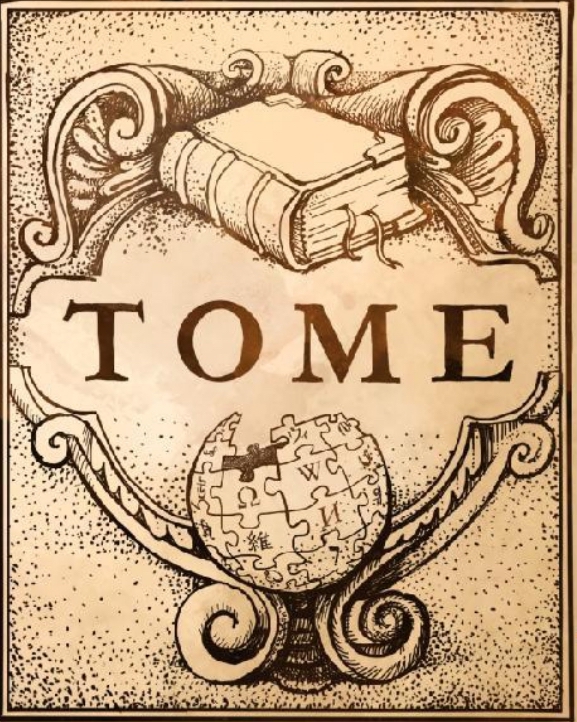Poskytovatel/Provider: Ministerstvo školství mládeže a tělovýchovy/Ministry of Education, Youth and Sports
Program/Programme: ERC CZ
Hlavní účastníci/Main participants: Filosofický ústav AV ČR, v. v. i.
Hlavní řešitel/Principal Investigator: Petr Pavlas
Doba řešení/Solution timeline: 1. 9. 2023 – 31. 8. 2025
Read more about TOME project.
Abstrakt
TOME představuje návrh hraničního výzkumu v oblasti intelektuálních dějin. Jedná se o průkopnické zkoumání raně novověkého encyklopedismu - a encyklopedie jakožto kulturní ideje - ze zcela nové perspektivy kulturní evoluce kognitivních metafor čili evoluční metaforologie. Obecným cílem je zásadně nové pochopení fenoménu, jenž umožnil vznik a rozvoj dvou hodnot klíčových pro společenskou soudržnost a kognitivní odolnost moderní doby: (1) všeobecné vzdělání a (2) otevřený přístup k vědeckým informacím. Využitím předností blízkého i distančního čtení představuje návrh TOME obsáhlý výzkum sémantického posunu mezi vzestupem křesťanské reformace a zrodem osvícenství. Spojením přístupu intelektuálních dějin (především dějin kulturních idejí) s teorií a dějinami metafor, teorií kulturní evoluce (především teorie kulturní atrakce) a metodami distančního čtení a korpusové analýzy diskursu TOME prozkoumá teologické, filosofické a vědecké knižní publikace, které byly napsané i vytištěné v letech 1517-1715. To umožní identifikaci vzorců a zlomových bodů v evoluci významů, která vyústila do revoluce v pedagogice a teorii vědy, a posléze vedla ke vzniku nových vzdělávacích curricul, institucí, učebnic a encyklopedií, ale také vědeckých časopisů, vědních politik, nových pojetí vědy a nových vědních oborů. Současný bezprecedentní rozsah a snadná přístupnost digitálních úložišť skýtá bohaté ložisko raně novověkých učeneckých textů, a tudíž také příhodnou dobu pro podnik, který si TOME předsevzal. Ambicí projektu je ustavit evoluční metaforologii jako novou oblast výzkumu, přenositelnou z intelektuálních dějin raného novověku na další historická období.
Summary
TOME proposes a pioneering study of early modern encyclopaedism - and of "encyclopaedia" as a cultural idea - from the radically new perspective of the cultural evolution of cognitive metaphors, or evolutionary metaphorology. The general aim is to gain a fundamentally new understanding of the phenomenon which made possible two important values crucial to the modern era’s social cohesion and cognitive resilience: universal education, and free access to scientific information. Using the advantages of both distant and close reading, TOME proposes a large-scale study of the semantic drift between the rise of the Reformation and the birth of the Enlightenment. Combining intellectual history with the approaches of metaphor studies, cultural attraction theory, distant reading, and corpus-assisted discourse analysis, TOME scrutinises theological, philosophical, and scientific books both written and printed between 1517 and 1715. This enables the identification of patterns and turning points in the evolution of meanings which resulted in a revolution in pedagogy and the philosophy of science, leading to the emergence of not only new educational curricula, institutions, textbooks and encyclopaedias, but also scientific journals, new science policies and conceptions, and new fields of study. The current unprecedented richness of public digital repositories, providing us with a gold mine of early modern scholarly texts, represents a timely opportunity for TOME’s enterprise. The ambition is to establish evolutionary metaphorology as a new field of study, transplantable from early modern intellectual history to other periods.


